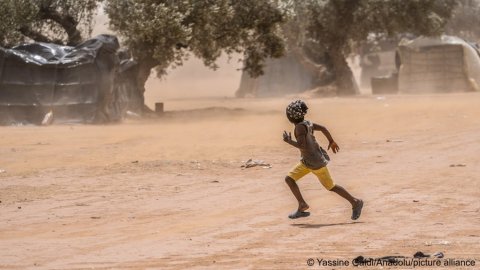Ivorian’s Experience Highlights Racial Discrimination in Tunisia’s Immigration System
The plight of migrants seeking better opportunities often reveals deeper societal issues, particularly regarding discrimination. The experience of an Ivorian man, who found himself imprisoned in Tunisia for illegal residency, starkly illustrates the intersection of race and immigration policies in the North African nation. His story sheds light on the broader challenges faced by Black migrants in Tunisia, offering a crucial perspective on the racial discrimination embedded within the immigration system.
The Background of Racial Discrimination in Tunisia
Tunisia, a country that has seen its share of migration, serves as both a transit point and a destination for many seeking refuge or better living conditions. However, the reality for Black migrants, especially those from sub-Saharan Africa, is often marred by systemic racism and discrimination. Reports indicate that these individuals frequently face hostility, not just from authorities but from segments of the local population as well.
Experiences of the Ivorian Migrant
The Ivorian migrant recounted his harrowing experience after being arrested in Tunisia. He described the situation as precarious, where being Black made him a target for law enforcement and societal prejudice. His testimony reveals a troubling narrative:
- Targeted Arrests: The individual noted that Black migrants are disproportionately targeted for arrests related to illegal residency. This raises questions about the fairness of law enforcement practices in Tunisia.
- Inhumane Conditions: During his incarceration, he faced dire conditions, highlighting the lack of adequate treatment for detainees, particularly those from minority racial backgrounds.
- Fear and Stigmatization: The fear of arrest and deportation looms large over Black migrants, leading many to live in hiding, further exacerbating their vulnerability.
The Legal Framework and Its Implications
Tunisia’s legal framework regarding immigration is complex. While there are laws in place to regulate residency and migration, the application of these laws often varies, disproportionately affecting marginalized groups. The Ivorian man’s experience underscores significant flaws in this system:
Discriminatory Practices
- Bureaucratic Challenges: Black migrants face additional hurdles in navigating immigration bureaucracy, often encountering biased officials who may view them with suspicion.
- Limited Access to Justice: Many migrants lack access to legal recourse, leaving them vulnerable to exploitation and abuse by both authorities and employers.
Societal Perceptions of Black Migrants
The societal attitudes towards Black migrants in Tunisia are influenced by a complex history of colonialism and racism. These perceptions often translate into discriminatory practices that further marginalize this community:
- Negative Stereotypes: Black migrants are often subjected to negative stereotypes, which can lead to societal ostracization and violence.
- Lack of Representation: The absence of representation in media and public discourse contributes to the invisibility of their struggles and experiences.
Consequences for Migrants
The implications of this discrimination extend beyond individual experiences to affect the entire community of migrants in Tunisia. The following consequences are noteworthy:
Psychological Impact
Living under constant fear of discrimination and arrest can have severe psychological effects on migrants. Many report feelings of hopelessness and despair, which can lead to mental health issues.
Economic Challenges
Discrimination also affects economic opportunities for Black migrants. Many are forced into low-paying, exploitative jobs due to their status and race, which perpetuates cycles of poverty and instability.
Calls for Change
Addressing these issues requires a multifaceted approach. Activists and human rights organizations are calling for:
- Policy Reforms: Changes in immigration laws that ensure fair treatment for all migrants, regardless of race.
- Awareness Campaigns: Initiatives aimed at educating the public about the contributions of migrants and the importance of diversity.
- Support Networks: Establishing support systems for Black migrants to help them navigate legal and social challenges.
The Role of the International Community
The international community also has a role to play in addressing these disparities. By applying pressure on the Tunisian government to uphold human rights standards and advocating for the protection of migrant rights, significant change can be achieved.
The Path Forward
As the Ivorian man’s story illustrates, the intersection of race and immigration in Tunisia is a critical issue that demands attention. The challenges faced by Black migrants are emblematic of broader societal issues that require urgent action. By acknowledging these disparities and working towards inclusivity and justice, Tunisia can move towards a more equitable immigration system.
In conclusion, the fight against racial discrimination in immigration policies is far from over. The experiences of individuals like the Ivorian migrant must serve as a rallying cry for reform, ensuring that all migrants, regardless of their race, are treated with dignity and respect.










